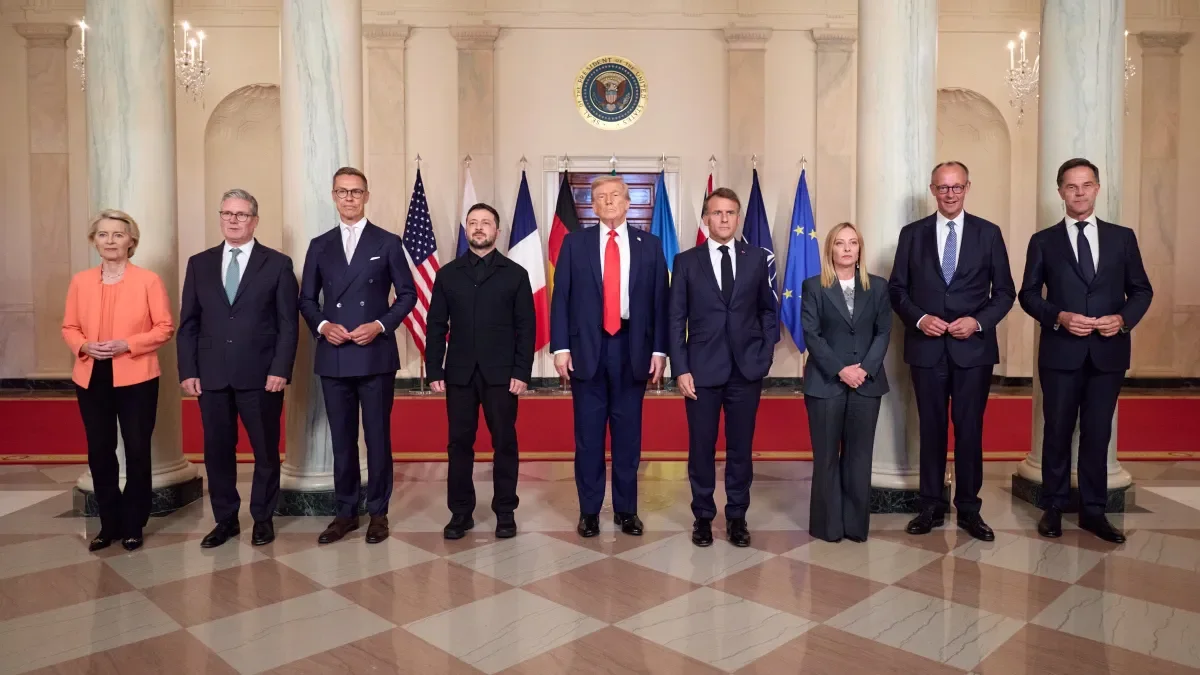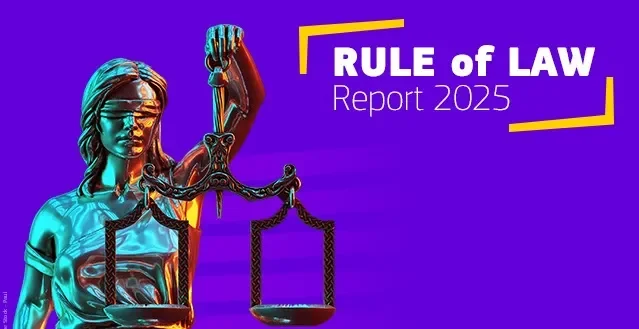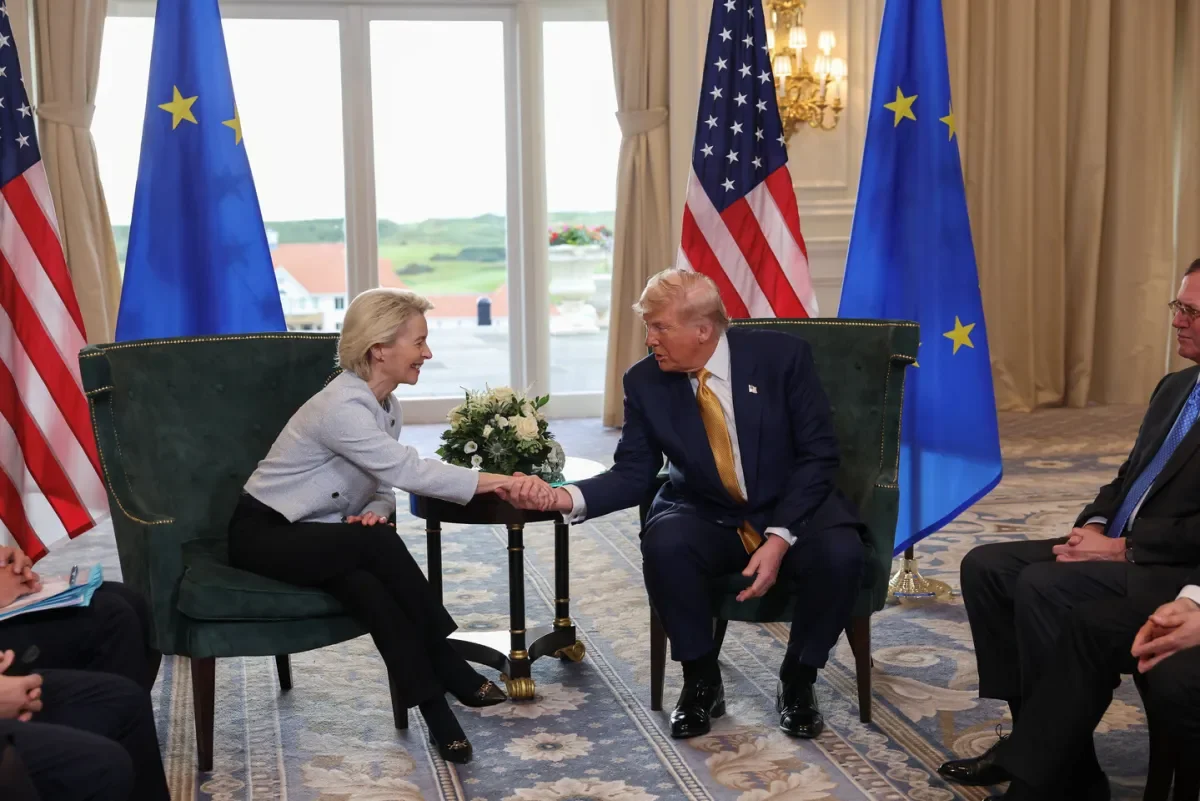
Christy Ann Petit (Dublin City University) and Thorsten Beck (European University Institute)
While closer cooperation in financial services would make sense for both the UK and the EU in the current geopolitical and geo-economic circumstances, we point to significant legal, institutional and political barriers to such cooperation. However, we also outline some options that respect the red lines on both sides.
The recent and continuing changes in geopolitical and geo-economic circumstances have led to increasing calls to deepen the cooperation between the EU and the UK, most prominently in the area of defence. There are also discussions about closer cooperation in the area of energy, law enforcement, professional qualifications and a possible UK-EU youth mobility scheme. All those developments follow the EU-UK resolve to ‘strengthen ambitiously their structured strategic cooperation’, as evident in the Joint Statement by President von der Leyen and UK Prime Minister Starmer, that announced the upcoming first EU-UK summit on 19 May in London.
However, the UK government has also drawn clear red lines for the relationship between the UK and the EU, namely staying outside the customs union and the Single Market. These red lines impose limitations on how close any cooperation can be, no matter which sector. Although the UK lost its EU passport to provide financial services, it still has a comparative advantage in financial services and may have some leverage to preserve a certain degree of regulatory autonomy.
In the following, we will discuss different options for closer cooperation in the financial sector - beneficial for both sides - to foster a more stable, predictable, and to some extent integrated cross-border environment. This is even more critical given increasing doubts about the role of the US dollar as international reserve currency and the risk that financial sector policies can become part of the trade war that the US has been waging on the rest of the globe.
Any such cooperation, however, is subject to several constraints: in addition to the UK government’s red lines, the indivisibility of the EU Single Market ‘four freedoms’, as well as the respect of the Withdrawal Agreement, the EU-UK Trade and Cooperation Agreement (TCA) – which was very thin for financial services – and the Joint Declaration on Financial Services Regulatory Cooperation. In the following, we will discuss the options for closer cooperation in three steps, from loose to closer cooperation, while acknowledging quite strong constraints.
- From regulatory divergence to dynamic alignment
One consequence of Brexit was possible active and passive divergence of the UK regulatory framework from that of the EU. Active divergence would occur when the UK “deliberately legislates to move away from retained EU Law” (Reland et al. 2021), as seen, for example, in the UK lifting limits on variable compensation. Passive divergence would reflect the UK not keeping up with EU legislative changes, for example in newly adopted legislation, such as in the area of crypto.
One low-hanging fruit of closer cooperation would be to limit even further such regulatory divergence. The easiest option would be to build on existing structures that were opened by ‘a new Chapter’ in financial sector cooperation already in 2023. Following the Windsor Agreement (which resolved the EU-UK stand-off on the Irish border), the UK and the EU signed a Memorandum of Understanding (MoU) establishing a framework for financial services regulatory cooperation on 27 June 2023 and in particular, the joint EU-UK financial regulatory forum. This forum serves to discuss legislative initiatives, regulatory changes and issues of common interest – including market developments, financial stability issues, and fostering enhanced EU-UK cooperation ahead of global forums. Important outcomes of the structured engagement in this Forum could be:
- Minimising divergence in financial sector regulation between the EU and the UK, including by technical and activities-based cooperation (e.g. sandboxes, digital innovation), as this has been done in other areas, i.e. to preserve integrated value chains
- Aligning EU and UK interests and interventions in international global fora, important especially in light of the US potentially withdrawing from being a leader in standard-setting organisations and the risk of global regulatory fragmentation
- Dynamic alignment in some areas (e.g. in regulation of crypto, the shortening of settlement cycles or the approach to Non-Bank Financial Intermediation actively discussed in international fora)
This would complement ongoing cooperation on the technical level between EU regulatory and supervisory authorities and their counterparts in the UK. All in all, this reflects the options available under the current situation with the operationalisation of the MoU after the Windsor framework, with soft mechanisms and where flexibility prevails. However, this does not equal the level of cooperation encompassed by a comprehensive financial services agreement (as a Chapter of the TCA) and the forum is a sort of satellite to the TCA institutional structures (e.g. the Committee on Regulatory Cooperation under the TCA).
- The use of clubs and equivalence regimes
One can envision a stronger form of cooperation moving beyond the Forum towards a multilateral club, similar to the Nordic-Baltic Financial Stability Group or the Network for the Greening of the Financial System. This would allow for closer cooperation including across areas currently not captured in discussions at the Forum. However, similarly to the current EU-UK joint forum, such a club would not be able to adopt binding measures, but it might help create more mutual trust between UK and EU and raise the ambition.
Cooperation would certainly benefit from the granting of additional equivalence to the UK, not only in terms of (selective) market access of UK players to EU financial markets, but also, inter alia, in terms of reinforced supervisory cooperation frameworks, data sharing and recognition of equivalent regulatory approaches and outcomes (even without direct access to the respective markets).
However, some of the features of the EU’s equivalence regime, particularly in financial services regulation, are in tension with the objective to build mutual trust and stable EU-UK cooperation. Indeed, equivalence is mostly a unilateral and discretionary policy tool. Unlike a treaty assuring mutual recognition, EU equivalence decisions are adopted by the European Commission (based on consultation with the European Financial Supervisory Authorities), they can be withdrawn at any time or even be temporary from the start (e.g. for UK CCPs), limited in scope and require reciprocity. Its political nature is also evident when equivalence has not been granted even in areas where UK rules are still mirroring EU rules – reflecting the concerns for future divergence.
Yet, in a new political context where overall EU-UK relationship improved with structured and constructive dialogue, the use of equivalence could become more predictable and less sensitive at the political level. In this sense, equivalence could be granted more gradually (limited to specific sectors and activities, e.g. AIFMD and investments services for professional clients, with reciprocity), perhaps on a more flexible outcome-based approach, so as to become a mutually reinforcing instrument of cooperation.
- A bigger deal?
In principle, any new agreements would become a supplementing agreement to the TCA and be subject to the same governance principles of the EU-UK cooperation framework (as per Article (1) TCA). The reportedly EU preference for supplementing agreement limits the alternative option of negotiating sectoral agreements outside the TCA. However, any financial services closer cooperation than described so far, including market access or on a sectoral basis, is rather limited for political and legal reasons.
First, it is limited given constraints in the UK political landscape (and the government’s red lines) and the constraint that all 27 EU member states would have to back any such new agreement.
Second, regarding the constraints stemming from the TCA – extended with a non-binding MoU on financial services cooperation, we see the reopening of the financial services sector provisions unlikely in the current political environment, at least in the short-run, considering the other priorities expressed for fishing waters, youth mobility, energy, law enforcement and security. Indeed, a review of the TCA is due in 2026 and will allow the parties to review the implementation of the entire agreement (see Article 776 TCA), along the end of transitional periods for fisheries and energy. All in all, it seems clear that the EU won’t let the UK ‘cherry-pick’ to access a part of the single market.
Precisely for this reason, coalitions of the willing (i.e., a subset of EU member states and the UK) cannot agree on deeper cooperation within the financial sector through a binding act, as this would touch the indivisibility of the internal market, whose functioning is the internal competence of the EU, and considering the extensive corpus of EU financial services regulation.
EU secondary legislation, i.e. legal instruments adopted by the EU co-legislators including regulations and directives, may enable the EU to act to adapt the equivalence regime or actually grant it on the basis of existing 13 EU legal acts, or provide for the conclusion of an international agreement (see Article 3(2) TFEU). This could make it easier for the UK to be granted equivalence, thus easing the conditions.
Conclusions
There is a clear appetite on both sides of the Channel to deepen cooperation. The financial sector is an obvious candidate for such closer cooperation. However, the red lines imposed by the UK government and legal constraints on the EU side, most notably the extensive harmonisation of EU Law in the field and the jurisdiction of the CJEU for its interpretation, limit the extent to which cooperation can be deepened and (selective) market access be eased for UK players. Even so, we lay out some options to deepen the cooperation within these constraints, including through more trust-building discussion fora, more extensive use of equivalence within the existing framework and broadening this framework to allow for easier market access by UK players. We believe such deeper cooperation can be beneficial for both sides, but will never replace full integration into the Single Market.

Christy Ann Petit is Assistant Professor at the School of Law and Government of Dublin City University (DCU) and Deputy Director of the DCU Brexit Institute. Her research interests cover EU Law, financial supervision and regulation, the law of the Banking Union, the Economic and Monetary Union, and central banking. X:@petit_christy

Thorsten Beck is Director of the Florence School of Banking and Finance and Professor of Financial Stability at the European University Institute. X: @TL_Beck_Firenze // @EUI_FBF_School



